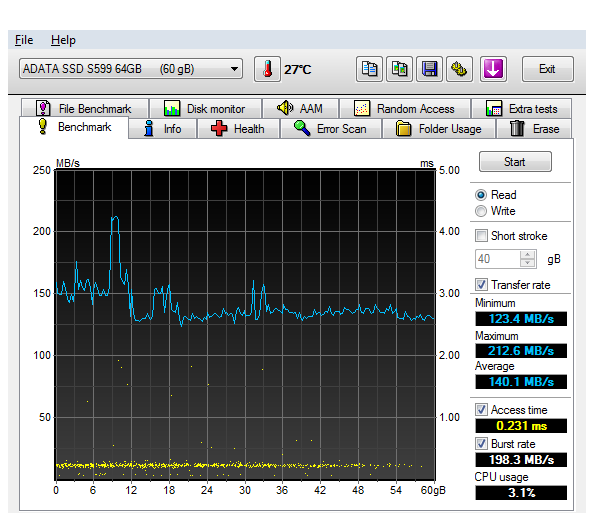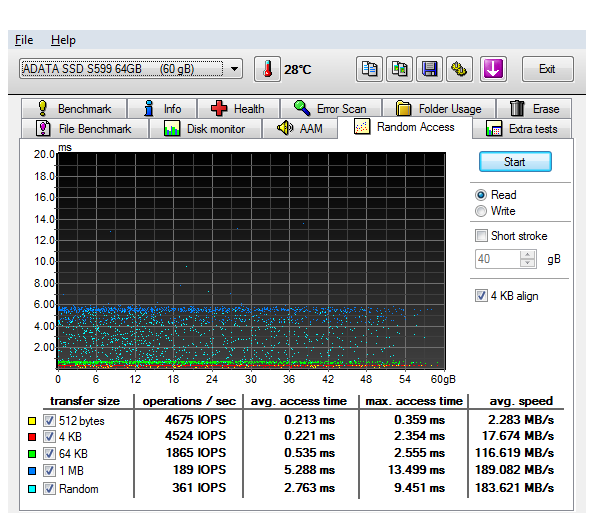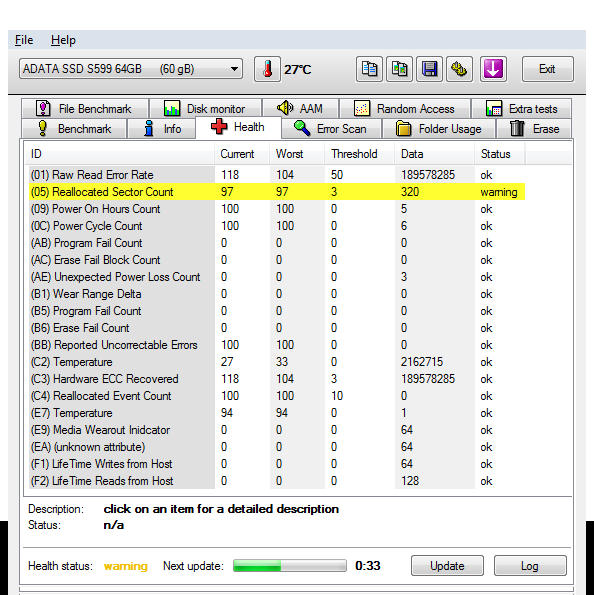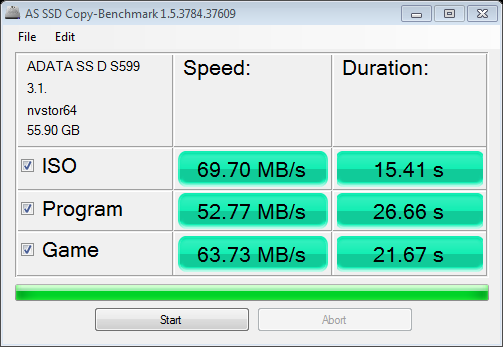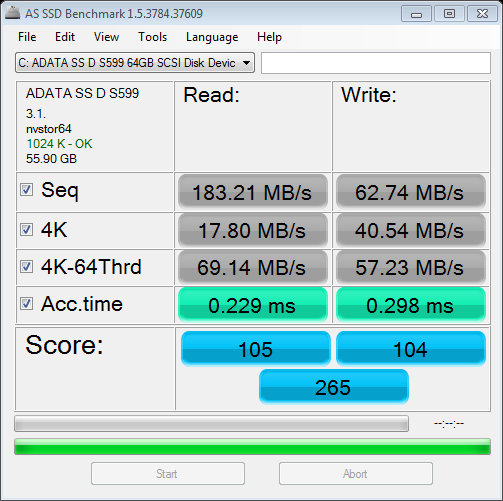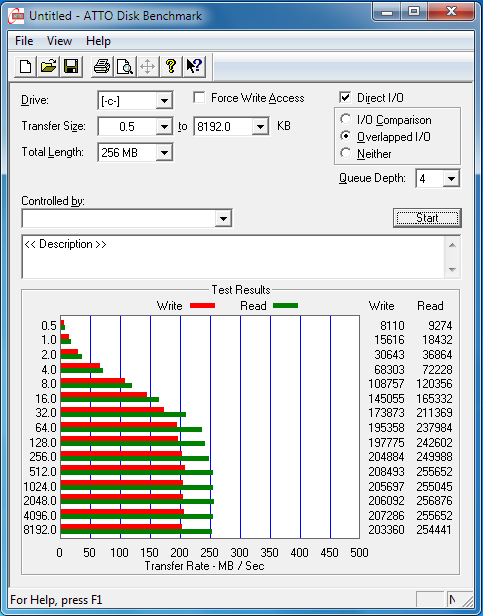I received my ADATA S599 60GB SSD today. It was a warm deal posted by ordovician a few days ago. I couldn't post a reply there because my post count is below 50.
Overall I think this is a good drive, although it seems to be slower than the published 100GB and 128GB drives benchmarks.
First of all, this is a 60GB drive, not a 64GB drive as advertised. Actual capacity is 55.9 GiB. A 64GB drive would have 59.6GiB space instead.
The drive arrived with a mis-aligned (63 sector offset) NTFS partition. I've no idea why.
SMART says that the "power on count" is 6, meaning that it has been powered on 5 times before I got the drive. "Unexpected power loss count" is 4. Perhaps they tested the drive? Or was it a returned drive?...
.PNG)
"SSD life left" is 94. CrystalDiskInfo interpreted that as "Health Status 94% Good". Not sure what that means.
The maximum read and write speed are 280MB/s and 230MB/s, obtained with ATTO. I believe ATTO writes zeros to the disk, which can be highly compressed by the Sandforce controller. However, I don't think this represents real world usage.

By default, CrystalDiskMark writes random data and gives much lower speeds than ATTO. Sequential read (write) speed is 201 (100) MB/s. The write speed is a bit disappointing. Choosing "zero fill" would double the write speed.
Default:

Zero Fill:

Maximum 4K IOPS achieved with QD=32 and zero fill is 43K. Not too far from the specs (50K). However, with random fill, the 4K IOPS drops to 26K.
As reported by HD Tune Pro, the average access time is about 0.1ms (4K, both read and write), but the maximum write access time can be up to 10ms (4K). Is this expected for a Sandforce-based SSD?


Link to HD Tune Pro 64K sequential read results
Link to HD Tune Pro 64K sequential write results
The AS SSD score is roughly the same as an Intel X25-M (just a bit lower, from what I've seen). The SSD copy benchmark gives a surprisingly low score for the "Program" test, though.


Do you have this drive? Do you get similar results?
Overall I think this is a good drive, although it seems to be slower than the published 100GB and 128GB drives benchmarks.
First of all, this is a 60GB drive, not a 64GB drive as advertised. Actual capacity is 55.9 GiB. A 64GB drive would have 59.6GiB space instead.
The drive arrived with a mis-aligned (63 sector offset) NTFS partition. I've no idea why.
SMART says that the "power on count" is 6, meaning that it has been powered on 5 times before I got the drive. "Unexpected power loss count" is 4. Perhaps they tested the drive? Or was it a returned drive?...
"SSD life left" is 94. CrystalDiskInfo interpreted that as "Health Status 94% Good". Not sure what that means.
The maximum read and write speed are 280MB/s and 230MB/s, obtained with ATTO. I believe ATTO writes zeros to the disk, which can be highly compressed by the Sandforce controller. However, I don't think this represents real world usage.

By default, CrystalDiskMark writes random data and gives much lower speeds than ATTO. Sequential read (write) speed is 201 (100) MB/s. The write speed is a bit disappointing. Choosing "zero fill" would double the write speed.
Default:

Zero Fill:
Maximum 4K IOPS achieved with QD=32 and zero fill is 43K. Not too far from the specs (50K). However, with random fill, the 4K IOPS drops to 26K.
As reported by HD Tune Pro, the average access time is about 0.1ms (4K, both read and write), but the maximum write access time can be up to 10ms (4K). Is this expected for a Sandforce-based SSD?


Link to HD Tune Pro 64K sequential read results
Link to HD Tune Pro 64K sequential write results
The AS SSD score is roughly the same as an Intel X25-M (just a bit lower, from what I've seen). The SSD copy benchmark gives a surprisingly low score for the "Program" test, though.


Do you have this drive? Do you get similar results?
Last edited:
![[H]ard|Forum](/styles/hardforum/xenforo/logo_dark.png)
